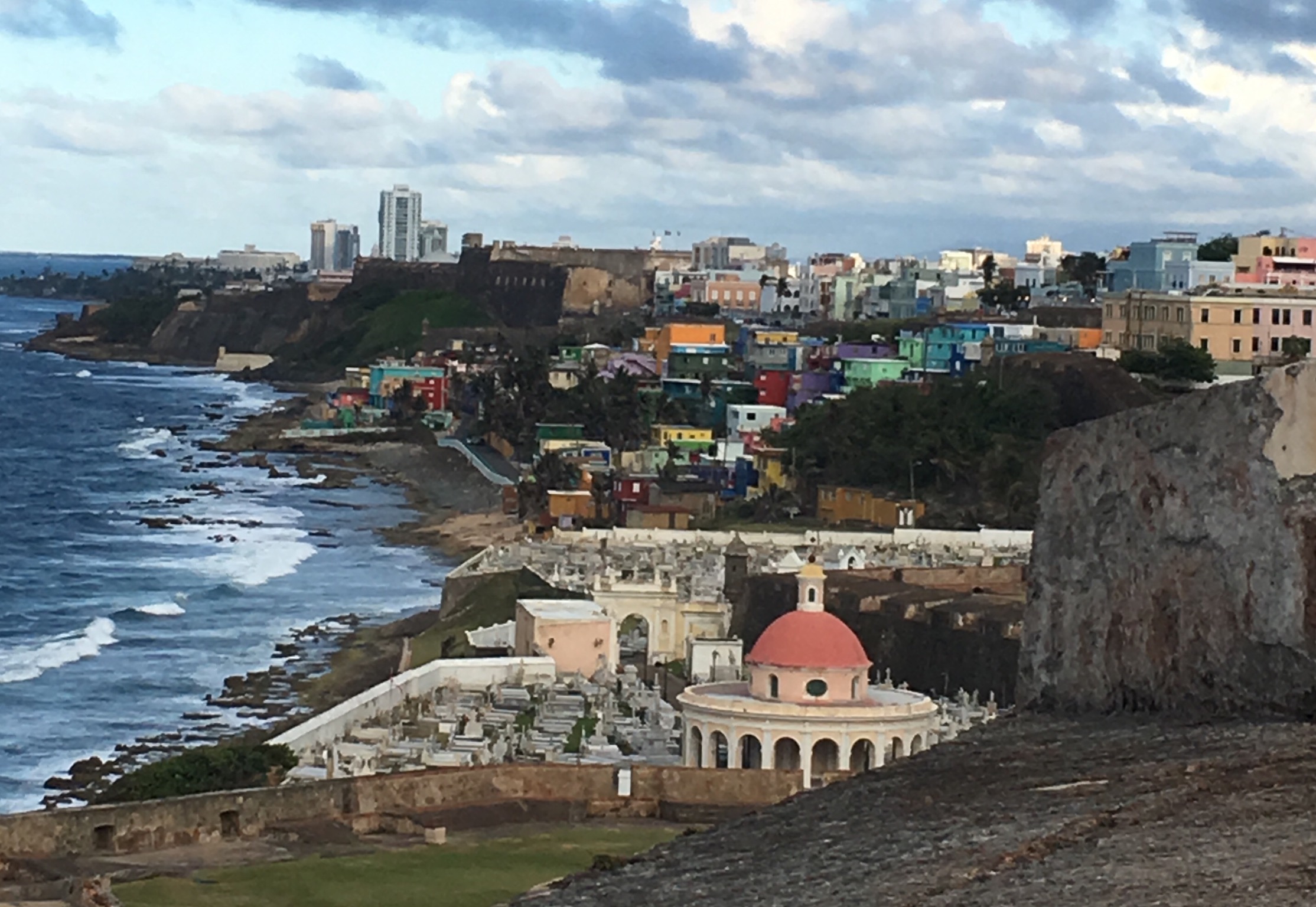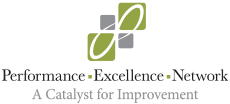
Lessons in Leadership & in Life: What Puerto Rico Can Teach Us All – PEN May 2018
May 23, 2018
Imagine living without power for eight months. That’s 241 days. Or 5,784 hours. I get cranky if we lose power for eight hours, let alone eight months! But that’s what our fellow Americans in Puerto Rico have endured since Hurricane Maria, which struck the US territory September 20, 2017. And many have endured so much more: more than 325,000 homes have been severely damaged or destroyed (over 250,000 still need repair); many are battling depression and PTSD (suicide is up 22% since the hurricane; up 100% for middle-aged adults); and many have lost their lives (the official death toll was 64,  but some estimates put the number over 1000). My family spent eight days in PR last month – that’s how we chose to spend our Spring Break. I’m glad we did, as the memories and the lessons will last a lifetime – lessons in leadership, in resiliency, in hospitality, in gratitude. Lessons that could benefit us all…
but some estimates put the number over 1000). My family spent eight days in PR last month – that’s how we chose to spend our Spring Break. I’m glad we did, as the memories and the lessons will last a lifetime – lessons in leadership, in resiliency, in hospitality, in gratitude. Lessons that could benefit us all…
First, some context. This month’s blog has nothing to do with politics or the US response to the disaster. I personally feel it’s been inadequate, as tens of thousands of American citizens are still struggling, and this should not be the case for the wealthiest, most powerful nation on earth.
Second (and I hope I’m not condescending in saying this), but the Commonwealth of Puerto Rico is a US territory, acquired from Spain after the US’s victory in the 1898 Spanish-American War. There are over 3 million people living on the Island, and they are US citizens. In my discussions over the last few months, many people just don’t realize that.

Third, this storm was massive – the third largest in US history (beating Irma just two weeks earlier). It peaked as a Category 5 hurricane and was still a Category 4 storm when it landed a direct hit PR, entering from the southeast corner and literally cutting a diagonal across the island. It had top winds of over 175 mph,
literally cutting a diagonal across the island. It had top winds of over 175 mph,  caused over $100 billion in damage on PR alone, leaving really no part of the island untouched (Puerto Rico is approximately 100 miles wide by 35 miles long). It took out power to the entire island (admittedly the infrastructure was already fragile, but I’m not sure any U.S. city would have fared much better); it rendered most potable water undrinkable; it destroyed tens of thousands of homes and other structures; it ripped off the canopy of El Yonque (a tropical rainforest and US national park) and nearly wiped out the island’s parrot population (which is one of the largest on earth). Power has been restored to more than 95% of the island today, but the outage is the second longest in world history (tracked since the development of electricity!).
caused over $100 billion in damage on PR alone, leaving really no part of the island untouched (Puerto Rico is approximately 100 miles wide by 35 miles long). It took out power to the entire island (admittedly the infrastructure was already fragile, but I’m not sure any U.S. city would have fared much better); it rendered most potable water undrinkable; it destroyed tens of thousands of homes and other structures; it ripped off the canopy of El Yonque (a tropical rainforest and US national park) and nearly wiped out the island’s parrot population (which is one of the largest on earth). Power has been restored to more than 95% of the island today, but the outage is the second longest in world history (tracked since the development of electricity!).
Finally, this story is personal. My wife’s family is from the island, with her grandmother, father, and other relatives moving to Minnesota in 1955. So after the hurricane, our family  felt compelled to help – we wanted to immediately, but conditions were just too dangerous. We decided to spend a “vacation” in a way none of us in the family had before: a self-designed mission trip to help our fellow Americans in need. What follows is a summary of my experience, along with many lessons that I hope have value for us all – as leaders and as people.
felt compelled to help – we wanted to immediately, but conditions were just too dangerous. We decided to spend a “vacation” in a way none of us in the family had before: a self-designed mission trip to help our fellow Americans in need. What follows is a summary of my experience, along with many lessons that I hope have value for us all – as leaders and as people.

Day 1:
- My first impression flying in was seeing PR’s beautiful coastline and beaches, but then noticing the hundreds of blue tarps still positioned on homes where roofs should have been (as of the time of our visit, an estimated 40-50,000 homes still did not have roofs).

- As we were deplaning, the guy in front of me asks if our family was there on a cruise, which had recently resumed to the island. I replied that we were there to help in whatever way we could. Our flight attendant, a Puerto Rican, overheard and offered a sincere thank you, commenting that many parts of the island were still in desperate need of help. She seemed choked up.
- We stayed at a small church – Iglesia Neuvo Testamento de Doraville – in Dorado, PR, which is about 30 miles west of San Juan (long story of how we landed there, and I’ll spare the details only to note that we didn’t secure accommodations until 72 hours before travelling). The church also had a small
 school attached to it, and a small dorm that slept 12 in bunk beds. It had a microwave (critical for coffee in the mornings!) and was air-conditioned – amenities we didn’t expect. Part of the church’s roof was still missing, I guess creating an unintended open-air patio that now served as the school’s cafeteria.
school attached to it, and a small dorm that slept 12 in bunk beds. It had a microwave (critical for coffee in the mornings!) and was air-conditioned – amenities we didn’t expect. Part of the church’s roof was still missing, I guess creating an unintended open-air patio that now served as the school’s cafeteria. - Lesson #1: sometimes it’s easy to focus on the things you don’t have rather than the things you do. Or said another way: when you come from abundance, never stop appreciating the value of the important things you have.
Day 2:
- One of my wife’s family friends drove us literally around the entire island, an 8-hour journey that took us along
 the coast, into and through the mountains (yes, there are mountains in PR), through cities and rural areas.
the coast, into and through the mountains (yes, there are mountains in PR), through cities and rural areas. - Driving around the island and through various neighborhoods, what struck me the most was the paradox of
 Puerto Rico: some areas were beautiful and mainly or fully restored, while others were virtually destroyed – roofs still missing; second stories of two-story homes completely ripped off; some homes left open and vacant. The paradox of beauty versus despair was obvious.
Puerto Rico: some areas were beautiful and mainly or fully restored, while others were virtually destroyed – roofs still missing; second stories of two-story homes completely ripped off; some homes left open and vacant. The paradox of beauty versus despair was obvious.  We came upon Mar Chiquita Beach, crowded on a sunny Saturday. People were grilling out, drinking adult beverages, playing or listening to music – much like we’d do around a lake in Minnesota anytime from now until October. Despite the challenges that many Puerto Rican’s still face, they are still living life. Lesson #2: regardless of what challenges you may face, live life to the fullest.
We came upon Mar Chiquita Beach, crowded on a sunny Saturday. People were grilling out, drinking adult beverages, playing or listening to music – much like we’d do around a lake in Minnesota anytime from now until October. Despite the challenges that many Puerto Rican’s still face, they are still living life. Lesson #2: regardless of what challenges you may face, live life to the fullest.
Day 3 (Easter Sunday):
- We celebrated Easter at the church that was hosting us. I was the only one in the room (of, I’m guessing, 200) that didn’t speak Spanish (my wife and kids do), but amazingly, they translated the live the sermon for me, having an assistant pastor follow the main pastor’s message by a second or two. Incredible service (yes, double entendre intended). Lesson #3: no matter the circumstances, life is about serving others.
- Another thing that struck me about this service: everyone that was there was filled with gratitude. Yes, it was Easter, so the day was about celebrating life and renewal for all Christians. But after all the challenges these people had faced, they seemed grateful for what they had. Lesson #4 (not my quote, but worth sharing): someone is praying for the things you take for granted.
Day 4:
- Our service work begins by helping an 80 year old church neighbor, Carmen, clean up her yard, which had not
 be touched since the hurricane – the grass was nearing three feet tall in spots! It took my son and me – and then joined by four others from the church – six hours to clear the yard.
be touched since the hurricane – the grass was nearing three feet tall in spots! It took my son and me – and then joined by four others from the church – six hours to clear the yard. - Part of our mission this day was simple and obvious: cleaning up the yard for someone in need. But equally – perhaps more – important was companionship. Carmen has no family left on the island. While my son and I worked, my wife and daughter spent hours with her, looking at family pictures, sharing stories, forming a relationship.
 Lesson #5: “service” can been shown in many ways.
Lesson #5: “service” can been shown in many ways.
Day 5:
- Upon getting our “assignment” for the day to help clean up and prep a classroom in the church that they are (re)building, the pastor apologized for the type of work that they were offering us, thinking it wasn’t meaningful enough (it should be noted that they didn’t expect us either, so really didn’t have time to arranged more significant work). I responded that we just wanted to help in any way we could. He mentioned that we were a “gift from God” (something I guess I’d expect a pastor to say!), but that led to lesson #6: small accomplishments add up to larger accomplishments. And lesson #7: any good deed matters.
- But then my personal mission revealed itself: the pastor asked what I did for a living. I told him that I help organizations improve performance – to do their work better and improve their outcomes. He seemed to light up and asked if we could “have a meeting” before we left the island, as the church was really struggling to handle the relief efforts. More on that later…
- After our work this day, our kids joined the church’s students for gym class and a game of kickball. The local kids took in our kids immediately, welcoming them as their guests. Lesson #8: hospitality brings warmth and displays human kindness, and can be shared in any language and within and between any cultures.
- Later that afternoon, we did manage to sneak to Dorado beach. Lesson #9: life needs harmony – leaders (and all people) need to balance (or blend) work and play.
Day 6:
- We spent most of today painting dorms of a nearby Lutheran church camp: Campamento Luterano Eduardo
 Roig. Again, not terribly difficult work, but work that needed to be completed as they continue to repair and prepare for a summer of returning campers.
Roig. Again, not terribly difficult work, but work that needed to be completed as they continue to repair and prepare for a summer of returning campers.
- That evening we journeyed into Old San Juan – visiting El Morro (a 500 year old Spanish fort), Parque de las Palomas (Pigeon park), and taking in the beautify of PR’s capitol city. By the way, the food all week was incredible!


Day 7:
- We were nearing the end of our trip, and today was the day we had our scheduled “meeting” with church leaders. For more than two hours, my wife and I listened to the pastor and an assistant pastor share the church’s vision (they beautifully articulated five strategic goals, each rooted in scripture), but then explored their biggest strategic challenge. The pastor shared that for their 40-year history, most of their mission work was off the island – in fact, a mission group had just returned from Honduras weeks before Hurricane Maria hit. But now, with so much need in Puerto Rico, they needed to turn their focus and their resources on the island. And they were struggling to successfully do so – they lacked focus; resources were diffused; projects were not coordinated. They needed a framework – and they needed processes – to help them coordinate and accomplish their work better.

- I shared with them the Baldrige Framework and gave them a mini-tutorial, helping them to see how using a system like Baldrige would help them align initiatives, optimize resources, and achieve better outcomes. They soaked it up! So I challenged them with an assignment: they had two months to complete what’s called the Baldrige “Organizational Profile” (which captures the environmental context of an organization, facilitating consensus among leaders as to factors such as an organization’s core competencies, strategic challenges, customer segments and their needs, and so forth). Those questions must be answered by any organization’s leadership so that it can prioritize strategies, allocate resources, make decisions, and align organizational processes and activities.
- I told them I wanted them to have serious discussions as a team – to debate and reach consensus on the factors truly facing their church. There is true value in the entire leadership team struggling through the questions, rather than the senior pastor locking himself up in his office and reflecting on the answers.
I told them that I would check in with them along the way, coaching and nudging as best I could (I have since done so twice). My goal was to help them do more (and better) missions, accelerating their support of recovery on the island. My hope also was that perhaps this might then spread this to other churches and nonprofits working on recovery. - So after several days of work gloves and paint brushes, I guess my true mission that week was to help them do their mission better. Lesson #10: even good (organizations, communities, leaders, or people) can get better.

Day 8 was a travel day, but with a nine-hour commute, I reflected on some other lessons I picked up along the way:
- Lesson #11: Life is about having resilience: what doesn’t literally kill you can make you stronger. Never give up.
- Lesson #12: There is beauty in every situation. You just have to find it.
- Lesson #13: It’s always darkest before the dawn. Maintain your optimism, and focus on the coming day.
- And Lesson #14: Some of life’s greatest blessings come through the good people with whom we are privileged to be living.
In Spanish, levantando means to raise, lift up. I’m not sure who was doing more of the raising or lifting up that week – my family, who was there to serve and help, or the ones that we were intending to serve and help. In truth, it was a little of both. Which I guess is a life and leadership lesson unto itself.

If you’re interested in helping fellow Americans still struggling in Puerto Rico, my wife and I are researching nonprofits that are focusing their fundraising and relief efforts in PR. If you’d like to be a part of the effort, drop me a note (brian.lassiter [at] performanceexcellencenetwork.org); thank you for your interest and support.
What comments do you have regarding resiliency, service, hospitality, gratitude, hope, and optimism? Participate in a discussion on this topic: visit our LinkedIn group to post a comment. And follow me on Twitter @LassiterBrian!
Yours in Performance Excellence,
Brian S. Lassiter
President, Performance Excellence Network
www.performanceexcellencenetwork.org
Catalyst for Success Since 1987!
Photo credit whnt.com, fortune.com, abcnews.com, washingtonpost.com, orlandosentinal.com, abcactionnews.com, Brian Lassiter


